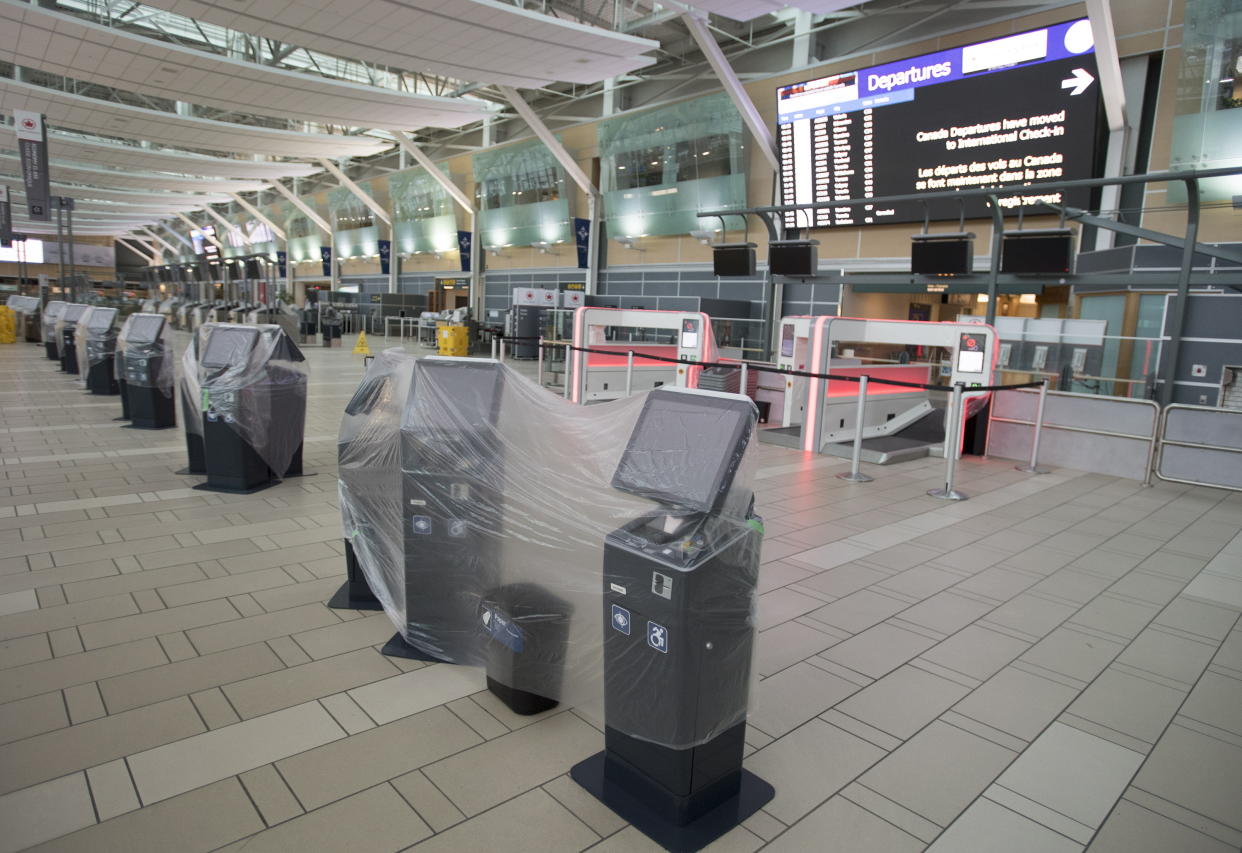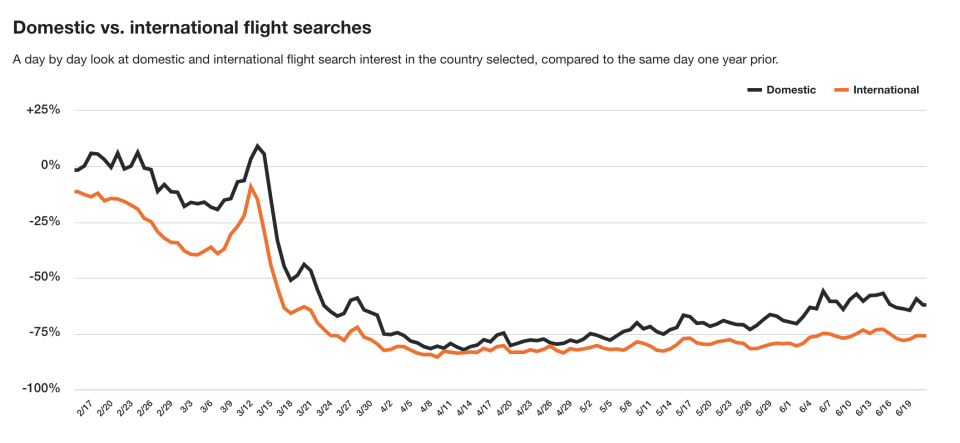'It’s going to be really tough to keep a traveller down': Canadians will face another 'huge challenge' with COVID-19

This time of year is usually filled with Canadians packing their bags for a summer vacation but with COVID-19, things are still up in the air about when travel can resume in the country and around the world.
While travel restrictions are still in place, airlines, hotels and other travel businesses are working to resume operations in any way they can.
Airlines have been promoting their summer travel schedules. From July 5 through August 4, 2020, WestJet indicated it will offer operations to 45 destinations including 39 in Canada, five in the U.S. and one in Mexico.
Air Canada announced plans in May to increase its international flights, including destinations like Rome, Athens, Shanghai and Munich, among others. Air Transat expects to resume its flights and tour operator activities on July 23, “gradually” operate direct international flights, including France, Italy, England, Cuba, Mexico and Florida.
This comes as the Canadian government continues to urge the public to avoid all non-essential travel and many provinces maintain a 14-day isolation rule for anyone coming into the province, even domestic travellers.
“I do think that travellers are very resilient, it’s one of the fastest growing industries in the world up to 2019, and I think it’s going to be really tough to keep a traveller down,” Greg Klassen, a partner at Twenty31 Consulting and is the former head of the Canadian Tourism Commission (now Destination Canada), told Yahoo Canada. “They’re really interested in travel and they will come back.”
Klassen said Millennial travellers in particular are expected to be the first group to go back travel, but seniors are also itching to get back to their annual trips, despite most of the severe COVID-19 cases impacting those 60 and older.
“In some of the international data that I’ve read there are still seniors, who are the most affected by COVID,...they’re really considering getting back on those cruise ships and getting on those planes and going through life that way again,” Klassen said.
Health expert says ‘ongoing customized travel advisories’ will be likely
Although there may be some people waiting for the moment they are able to take a trip, health officials still urge people to exercise a high degree of caution.
“Once we come out of this, unless we get a vaccine soon which I think isn’t going to happen until late 2021...we’re going to have this sort of slow burning risk that’s always going to be there in the back of our minds,” Dr. Sumon Chakrabarti, Infectious Disease Specialist with Trillium Health Partners told Yahoo Canada. “Particularly higher risk individuals, it’s going to be in every aspect of their life that’s outside of their house.”
Dr. Chakrabarti said there is a particular risk for anyone planning to travel via plane, train or another publicly shared mode of transportation.
“The main issue with viral spread is that you have the common themes of people being in close contact, in an enclosed space...for a prolonged period of time,” he said. “An added risk is if you’re in that same type of situation and you have things like people talking a lot, yelling or singing, these are things that can further add to that risk.”
When Canadians can travel to international destinations, assuming a vaccine still isn’t available globally, they should also factor in the risk of being infected with the disease in their destination.
“As we come out of restriction, you’re going to see that the situation is going to be different in different places,” Dr. Chakrabarti said. “Certain places, like Australia, haven't seen any cases for a while or very, very few cases, whereas the risk of going to certain places like [the United States] where there’s an ongoing big transmission, these things will be definitely something to consider.”
“What I suspect is that there will be ongoing customized travel advisories on where you should avoid non-essential travel going forward.”
When it comes to welcoming international travel to Canada, that’s where Canadians seem to be particularly “skittish.”
“It’s going to be an absolutely huge challenge for Canada,” Klassen said. “Welcoming visitors from those places is going to be very, very challenging for Canadians.”
“I think the Canadian tourism industry needs to start to put together a communications and marketing plan to help Canadians feel more comfortable about that traditional welcome that they offer to international visitors but they’re not there yet.”

Canada’s ‘strong’ domestic tourism could keep travel businesses afloat
It’s no surprise that travel experts anticipate domestic travel to rebound faster than international travel.
“The good news about Canada is that we have a very strong domestic tourism industry,” Klassen said. “We have the ability...to encourage Canadians to move and travel within Canada.”
According to daily search data from Kayak, domestic and international flight searches have significantly decreased from early March but the disparity between the two continues to grow, with more Canadians search for domestic trips.
The first significant indication of this domestic travel trend will likely begin with what Klassen calls “bubble tourism,” where certain provinces enter an agreement to allow visitors to cross joint borders without having to isolate for 14 days.
Currently, provinces in the Maritimes are in talks about an “Atlantic bubble” that would allow people to move among the four provinces without any isolation requirements.
Manitoba has decided that people coming from B.C., Alberta, Saskatchewan and parts of northwestern Ontario can enter the province without self-isolation if they are not symptomatic or a known close contact of a COVID-19 case.
Although domestic travel could be quite strong in Canada, it likely still won’t be enough to make up for the loss in international tourism but could be enough to “keep some businesses afloat for this year,” according to Klassen.
“The big spenders are really the international travellers, they’re the ones that will take those helicopters over Niagara Falls or do those major excursions in Banff and stay in those super high-end hotels in Tofino, and so those are the ones that we’ll miss,” Klassen said. “We’ll miss that big spending, international trip of a lifetime type of visitor.”


